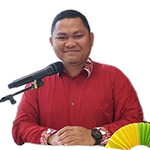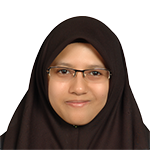-
Hassan Adamu (Nigeria)
MSc. Mix Mode
-
Zaaba Ahmad (Malaysia)
Zaaba is a Masters candidate who has worked on a research in-line with the trending of Social Media era where he predicted personality traits through the usage behaviour of social media. His study was to demonstrate how people’s behaviour in social media can be used to predict user personality traits. He has been inspired to work in this area as social media has become universal and important platform for networking and content sharing. Zaaba is now teaching in a local public University.
-
Michael Kong (Malaysia)
Michael Kong received his Bachelor of Computer Science with distinction from the University of Wollongong in 2016 and his Master of Science (Computer Science) from Universiti Sains Malaysia in 2018. His research for his masters thesis focused on image recognition in the area of microbiology, particularly for cyanobacteria recognition. In his free time, he enjoys learning about new and upcoming web technologies as well as photography.
-
Najlaa Saddiq Mokhtar (Malaysia)
Najlaa Sadiq Mokhtar is a MSc. candidate who embarks on an interesting research in the field of Human Computer Interactions, focusing in Affective Computing (personality, behaviour and emotion analysis) in learning, which. In short, she attempts to investigate the effects of emotions in learning. She hopes to build an affect-sensitive synthetic tutor that could detect and respond appropriately to learner’s state. The emotions involved would be those that accompany learning. Najlaa is now a senior software engineer in a private company.
-
Amal Azazi Abdulaziz (Yemen)
Amal Aziz’s research interests lay in the field of computer vision, image processing and pattern recognition. Particularly, she is passionate about human emotion recognition towards enhancing human-computer interaction. Her Master’s research is on automatic facial expression recognition in 3D faces. Her intentions are to work in analyzing the verbal and non-verbal human emotion cues to build a multi-model emotion recognition system. Applying such a system in a particular application, such as: gaming, tutoring, etc, to improve the human emotional experience with machines is her ultimate goal. Amal successfully completed her Masters (by research) and is currently embarking PhD. She investigates facial expression recognition impairments in drug users. She would move…
-
Ren Xiaowan (China)
Laura Ren’s interests lie within the area of Social Informatics, which is the study of social phenomena, behaviours and structure through the use of technology. Her work focuses in interaction in the Chinese cultural context, using social media features. Currently she is a MSc. Informatics candidate at PPSKOMP, USM. The idea of making machines understand people’s language and emotion has attracted her attention. She is eager to explore the new world, as Tagore said, she believes this would be the new power of her growth.
-
Ammar Nor Shahrin (Malaysia)
Ammar has developed MENDA (Mental Health Dashboard), a tool tailored for educational institutions with the primary goal of offering a comprehensive overview of students’ mental health. In response to the escalating mental health concerns among students at SMK Datuk Hj. Mohamed Nor Ahmad, Ammar’s MENDA seamlessly integrates yearly student survey data, including GAD-7 and PHQ-9 surveys. This information is presented in a user-friendly dashboard powered by PowerBI. MENDA’s dashboard provides visualizations, group comparisons, and the capability to identify students exhibiting depressive and anxiety symptoms. Additionally, Ammar has incorporated a machine learning model for early case identification. By utilizing various features from student surveys, this proactive approach aims to predict potential…
-
Bader Husni Zyoud (UAE)
Meet Bader Zyoud, an insightful Information Security Engineer based in the UAE. As he nears completion of his Masters, Bader has immersed himself in pioneering research at the intersection of cybersecurity and organizational culture. Beyond being a proficient Information Security Engineer, Bader is a driven professional with a keen interest in understanding how information security culture influences the implementation of the zero-trust model within organizations. In his ongoing research, Bader investigates the intricate dynamics between information security culture and the zero-trust paradigm, unraveling the nuanced ways in which these elements intersect to fortify an organization’s cyber defenses. His commitment to academic excellence, coupled with real-world experience, positions Bader as a…







